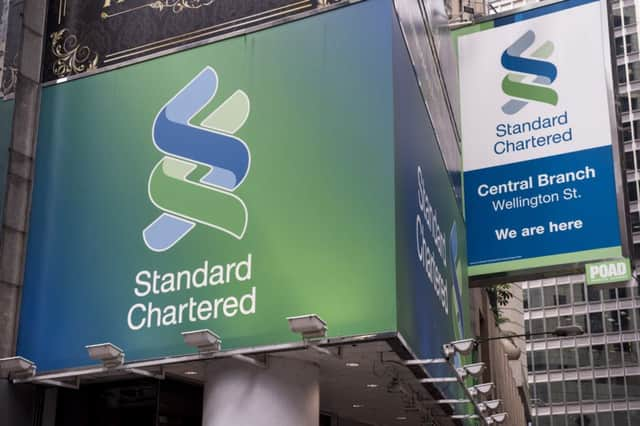Money-laundering failures cost British bank £180m


The city’s Department of Financial Services said the order signed yesterday followed the bank’s failure to fix compliance problems against money laundering as required under a two-year-old settlement.
The independent monitor established under that settlement found the bank failed to detect many potentially high-risk transactions originating from Hong Kong and the United Arab Emirates.
Advertisement
Hide AdAdvertisement
Hide AdStandard Chartered said it was continuing to fix its control issues and would work with “the small proportion” of clients affected in Hong Kong and the UAE to minimise disruption.
“We are committed to compliance with the order and our work with the monitor,” said spokesman Shaun Gamble.
Regulators reached a $340m settlement with the bank two years ago, intended to settle allegations it worked with the Iranian government to launder $250 billion from 2001 to 2007.
Terms included installing the monitor for at least two years to evaluate the bank’s risk controls for money laundering and corrective action.
“If a bank fails to live up to its commitments, there should be consequences,” department superintendent Ben Lawsky said yesterday. “That is particularly true in an area as serious as anti-money-laundering compliance, which is vital to prevent terrorism and human rights abuses.”
The US imposes financial sanctions on political enemies to hinder their access to the global financial system.
Under yesterday’s agreement, the bank will provide a plan for further corrections within 30 days, continue with the independent monitor for two more years and, in the meantime, require affiliates to identify the name, address and country of origin for clients in its currency exchanges for US dollars in amounts of $3,000 or more.
The bank is based in London but makes most of its money in Asia, Africa and the Middle East.
Advertisement
Hide AdAdvertisement
Hide AdIn recent years, US regulators have also punished other European banks including Barclays, BNP Paribas and HSBC for falling foul of laws against money laundering or doing business with blacklisted countries.